Our slogan is
“Connecting China and Europe, harmonizing the world”
The international situation is changing, and China's neighboring country, Afghanistan, has changed overnight. On August 15, the then Afghan President Ghani fled from the capital Kabul to the UAE, and TTP then occupied Kabul. On August 17, Afghan First Vice-President Amnullah Saleh announced his assumption of office as interim president in accordance with the Afghan constitution. He recaptured the TTP-held capital of Karikal in Parwan province and declared that he would continue to confront the TTP. But on 19 August, TTP announced the creation of an "Islamic Emirate of Afghanistan" and its spokesman, Mujahid, tweeted a new "national flag" (see cover photo), which also signalled its full control of the country. The country, which has been in turmoil for 40 years, is once again at the crossroads of its destiny and may be in for some radical changes.
01 A twist of fate for the 'graveyard of empires'?
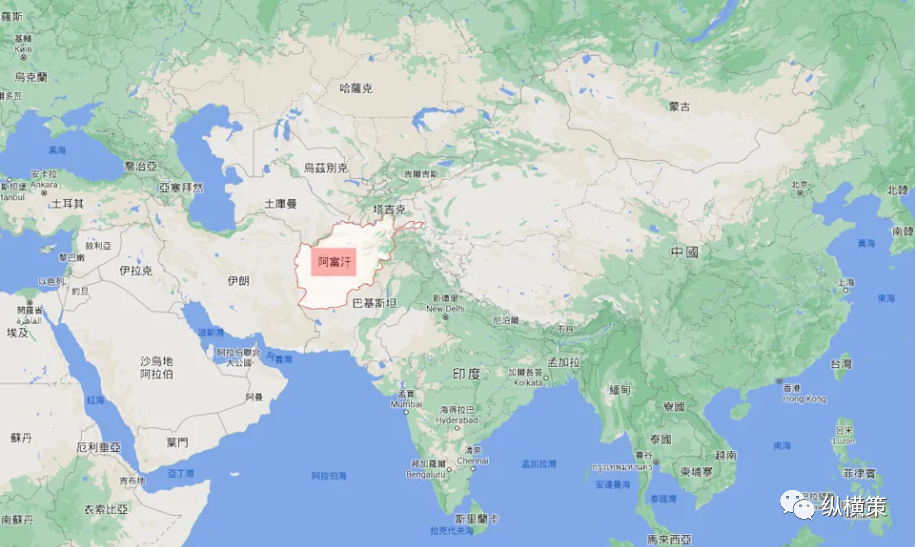
Afghanistan is known as the "graveyard of empires": it has been invaded by the British Empire three times in its history (1839-1842, 1878-1880 and 1919), plunged into a long war of invasion by the former Soviet Union during the Cold War (1979-1989) and has yet to catch its breath after the end of the Cold War. The Cold War was followed by a long war of invasion by the former Soviet Union (1979-1989) and, with the outbreak of the events of 11 September, by the invasion of the United States, which continues to this day. However, all the world empires that have invaded Afghanistan have met their Waterloo - with the potential independence of Scotland and Northern Ireland, the post-Brexit British Empire is morphing into "The former Soviet Union has long since disintegrated into 15 countries, and the US Empire, retreating from Afghanistan, is undergoing a new period of global strategic contraction.
Why has Afghanistan become the focus of the hegemonic struggle?
Because Afghanistan's geostrategic location is extremely important: it is linked to Central Asia (Turkmenistan, Tajikistan) to the north, to China (through the Wakhan Corridor) to the east, to Iran to the west and to Pakistan to the south, making it the pivot of the whole of Asia and the crossroads of Eurasia. Theoretically, whoever controls Afghanistan will have a strategic advantage in the geopolitical game of Eurasia.
At the same time, Afghanistan itself is rich in minerals: its former government estimated that it had reserves of about 10 billion tonnes of iron ore, 30 million tonnes of copper, gold and molybdenum, 30 billion cubic metres of marble, 1.18 to 19.15 trillion cubic metres of natural gas and 391 to 3.56 billion barrels of oil. These figures are also likely to be significantly underestimated as field surveys have largely come to a halt due to the ongoing war in Afghanistan for over 40 years.
But the embarrassment is that Afghanistan, which should be making the most of its geopolitical advantage for development, has been forced to struggle in a hegemonic game for more than 40 years since 1979 because its strategic position is coveted by all the world-class hegemonic powers, and has never been given an external environment for independent development. The current complete occupation of Afghanistan by the Taliban may, on the positive side, be the first time in 40 years that the country has won a relatively stable internal and external environment and the opportunity to turn its fortunes around and embrace independent development.
02 The US rout
"If you think you've accomplished nothing, think of the United States: four new presidents, $2 trillion spent, 2,300 soldiers sacrificed, and 20 years of successfully turning the Afghan regime from Taliban to Taliban." --Netizen's mock
There are two issues worth noting here.
The first is the resettlement of pro-American Afghans during the US occupation.
It must be said that the recent US withdrawal in Afghanistan can be described as a "rout", no wonder it was derided by the media as the "Saigon moment" of the 21st century, comparable to the wretched scene of the US withdrawal from Vietnam in 1974, with the famous The "Iron Fist of Saigon" (see below) - the US military refused to take the "Vietcong" who had helped the US out with them, and even punched the "Vietcong" who tried to get on the plane The "Vietcong" were knocked off the plane with a single punch. Similar scenes occurred during the current withdrawal from Afghanistan: not only were more than 20,000 "traitors" who had cooperated with the US during the occupation refused to evacuate with them, but three Afghans who had picked the landing gear of a US plane were even filmed falling to their deaths after the plane had lifted off the ground. As the saying goes, "people follow the plane, dogs (military dogs) sit in the plane", but unfortunately, although the U.S. military took the dogs with them, they left the dogs behind. ...... Therefore, the CCTV movie channel CCTV-6 (commonly known as "Six Princesses ") has, fittingly, chosen to show the film "A Dog's Way Home" on the day the US troops were evacuated ......
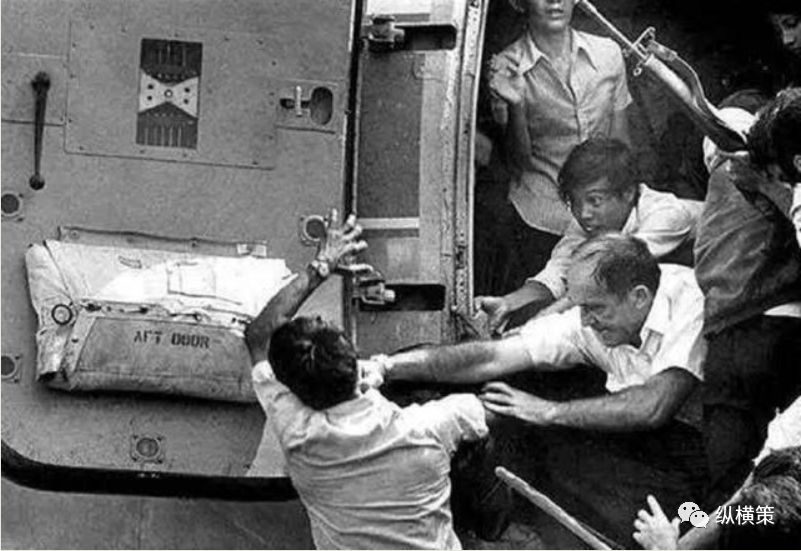
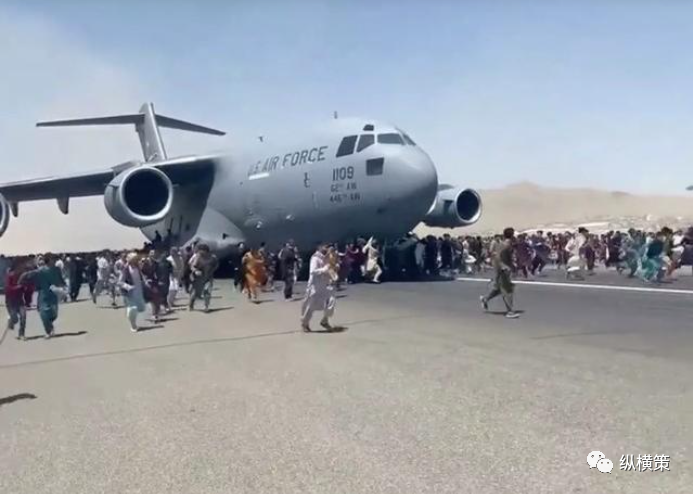
In all seriousness, who are the people who want to follow the US troops out? Some of them are of course the so-called "traitors", but there are others: firstly, the wealthy and celebrity figures who fear the turbulence of the times and the liquidation of the Taliban, such as the famous Afghan singer Ayana Sayed, who has moved from the ethno-religious to the capitalist level; secondly, those who have taken the opportunity of refuge to work abroad; and thirdly, those who have taken advantage of the opportunity to work abroad. Afghans who were completely brainwashed by the US media during the US occupation and who believe from the bottom of their hearts that the Taliban in power is bound to follow a terrorist course. Either way, one thing is undeniable - the US has not properly addressed the issue of the resettlement of pro-US Afghans due to the hasty withdrawal of troops, which has even led to a humanitarian disaster.
The second thing is, whose fault is it that the US is failing in Afghanistan?
At the leadership level, the first one to take the blame is George Bush Jr. The most responsible person for the U.S. policy in Afghanistan is of course former President George W. Bush Jr. As we all know, after the "September 11" incident, the U.S. launched the first invasion of Afghanistan because the Afghan Taliban was protecting Osama bin Laden, and soon overthrew the Taliban regime. However, the real strategic intentions of the US towards Afghanistan soon became apparent - the "democratisation of Afghanistan", which in fact means that it hopes to turn Afghanistan into its servant state and put a nail in the coffin of the US Eurasian strategy.
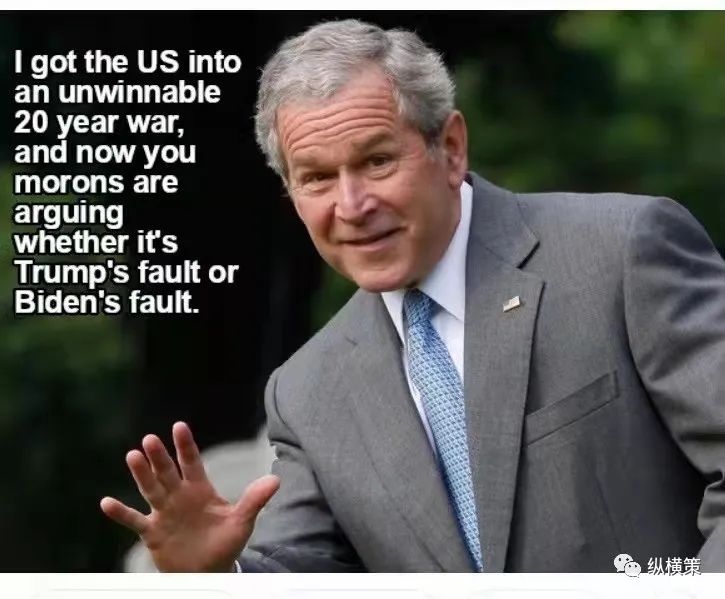
Illustration - Bush Jr: "I was the one who took America into a war it couldn't win for 20 years, and now you dumb X's are actually arguing whether (the Afghanistan debacle) was Trump's or Biden's fault."
Governance level, corruption on all fronts. The second reason for the collapse of US policy in Afghanistan is corruption on all fronts, from the US military in Afghanistan to the US-backed puppet government in Afghanistan, no one has ever taken the interests of the Afghan people seriously, they all think of ways to swindle the US government: for example, it was revealed that the US military in Afghanistan had spent $6 million to fly nine sheep to Afghanistan on the pretext of "improving meat breeding". For example, it was revealed that the US military in Afghanistan had spent US$6 million to fly 9 sheep to Afghanistan on the pretext of "improving meat breeding" and then nothing more, so I guess that's how the US spent over US$2 trillion in Afghanistan; for example, former Afghan President Ghani, who fled to the UAE, has a family chain that is entirely in the service of the US military in Afghanistan, and according to unconfirmed information, he fled Afghanistan with US$169 million ...... Add to this the repeated and indiscriminate killings of Afghan civilians by US forces, as revealed by Wikileaks, and it is easy to see why, with such a seemingly disparate balance of power between the two sides (below is a comparison of the military strength of Afghan government forces and TTP), TTP has met little or no resistance to its advance on the city, including the capture of the capital, Kabul.
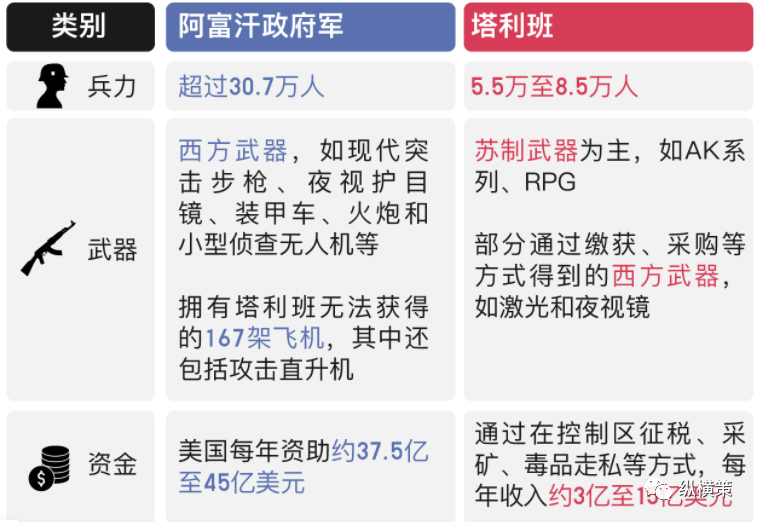
Image source: Punch News
03 The future of Afghanistan after the Taliban take power
The challenges ahead
At present, it seems that it is only a matter of time before the Taliban take full control of Afghanistan, and the only purpose of Saleh's resistance is to gain more seats in the future coalition government of Afghanistan. However, the future of Afghanistan after the Taliban take power will face many challenges.
First, the financial crisis and international sanctions. Firstly, the US has announced that it will freeze Afghanistan's foreign exchange reserves of US$9.5 billion, which means that the Taliban government will have almost no foreign currency in US dollars to buy goods internationally, and Afghanistan will undoubtedly be subject to US sanctions. The Taliban's main source of income during the guerrilla warfare period was not only taxes but also drug smuggling, which is a typical terrorist model. The Taliban's main source of income during the guerrilla warfare period included, in addition to taxes, the typical terrorist model of drug smuggling.
Secondly, there is a food crisis and a demographic crisis. Afghanistan is a landlocked country with mountains, deserts, plains and low precipitation, with a population of over 40 million. Europe, represented by the Macron government in France, besides considering the Americans unreliable, is also very worried that a successful seizure of power by Atta would create a new international refugee crisis that would again affect Europe. Since 2015, Europe has been in the grip of the Syrian refugee crisis and has been discussing the future of the "greening (Muslimisation) of Europe" from time to time. If there is another international Muslim refugee crisis, Europe will be in a quagmire.
Thirdly, there is a crisis of governance transition. Here it is important to distinguish between the Afghan Taliban, which is about to come to power for a second time in Afghanistan, and the Pakistani Taliban, a terrorist organisation funded by India and often sabotaging Chinese projects in Pakistan. The word "Taliban" means "apprentice", and both the TTP and the PTA were indeed religious extremist militant groups of a terrorist nature in their initial stages, even when the TTP blew up what it saw as a "pagan Buddhist shrine" at the end of its reign It is true that both Atta and Bata were terrorist extremist militant groups in their initial stages, even to the extent that, towards the end of its rule, Atta blew up the Bamiyan Buddhas, which it regarded as "pagan shrines" (the Chinese "Lovers" team was also wanted by Atta for the photographic restoration of the Bamiyan Buddhas). However, it cannot be denied that Atta has a popular base in the region, as evidenced by the fact that it has conquered many provincial capitals with little resistance. Attah is no longer a "fighting" team, but a "governing" team, which inevitably requires a transformation of its governance. In fact, in the opinion of the government, there is a high level of planning behind TTP, as evidenced by the following: after taking over the capital Kabul, TTP announced that all former government civil servants would be retained in their official positions because it knew that these officials were the mainstay of the country's governance; TTP held a press conference at the first opportunity to announce the abolition of the drug trade and that it would respect the rights of Afghan women. This is a demonstration to the international community, hoping to gain international recognition as soon as possible; after taking control of the situation in Afghanistan, Atta did not pursue the US troops, but announced that they could be allowed to withdraw safely, giving enough face to the Americans, which in turn made Biden's performance attract a lot of scorn.
04 The strategic significance of Afghanistan's change of heart for China
First, the political basis for Sino-Afghan cooperation is stable. In fact, while the United States is strategizing in Afghanistan, China has also been laying the groundwork: since a few years ago, Beijing has taken the initiative to set the stage for peace talks between the former Afghan government and the Taliban. After the withdrawal of US troops from Afghanistan this time, it will be difficult for the US to have a direct hand in the country in the short term, leaving only a few wedges to make trouble. Once Attah is fully in power and succeeds in forming a coalition government, allowing the political situation in Afghanistan to enter a period of stability smoothly, Sino-Afghan cooperation can be opened immediately.
Secondly, the Belt and Road cooperation, given that Iran and Pakistan are heavyweight strategic partners of China on the Belt and Road, if Afghanistan can be included in the Belt and Road system and achieve coherence, it will play a very positive role in the construction of China's future economic system in Asia and Europe. Politically, the inclusion of Afghanistan as a geopolitical pivot will also greatly strengthen the foundation of the China-Russia-Iran triangle alliance and enhance the internal ties of this alliance.
According to the above analysis, Afghanistan has very abundant natural resource reserves, and as China is the world's largest industrial country, the stable supply of raw materials is very important to China. In the current international situation, China is almost the only possible partner for the post-war reconstruction of Afghanistan, and TTP naturally knows this. According to reports, Attah was the first to greet the Chinese Chamber of Commerce in Afghanistan after the occupation of Kabul, saying that it would guarantee the interests and security of the Chinese in Afghanistan.
Then came the Central Asian bridgehead for the internationalisation of the RMB. As the US froze Afghanistan's foreign exchange reserves in US dollars and the probability of imposing international sanctions. China can take this opportunity to sign a currency swap agreement with Afghanistan, or even anchor the exchange rate of the Afghan local currency directly to the RMB, and use the RMB to settle engineering projects. This would be a breakthrough for the internationalisation of the RMB in the Eurasian hinterland.
Finally, it will warn against Taiwan independence and indirectly promote the great cause of reunification. The US Biden administration's panicky handling of the Afghan withdrawal has shaken its prestige in the alliance system, and allies with whom the US has security alliances, including Europe, Japan, South Korea and Taiwan Province, have greatly diminished their confidence in the US security commitment. Although Biden has personally stepped in to wash his hands of the situation, a fait accompli will not wash at all. In particular, the US intelligence service's prediction was a shocker. Previously, it was expected that Afghan government forces would last at least 90 days after the US withdrawal, but it turned out that the defence was broken in nine days (6-15 August). According to this ratio, the U.S. assessment that Taiwan can hold out for 3 days in a war in the Taiwan Strait, then in reality Taiwan may not even last 7 or 8 hours ......
|
Prev:Reflections on the "Baltic Death Dealers"--Lithuania's Anti-China Acts
Next:ZHC Commentary : America's "Chernobyl" |
Return |
Link :
Copyright : ZONGHENGCE Strategy Insitute(ZHC)
Technical support: Yunding Data